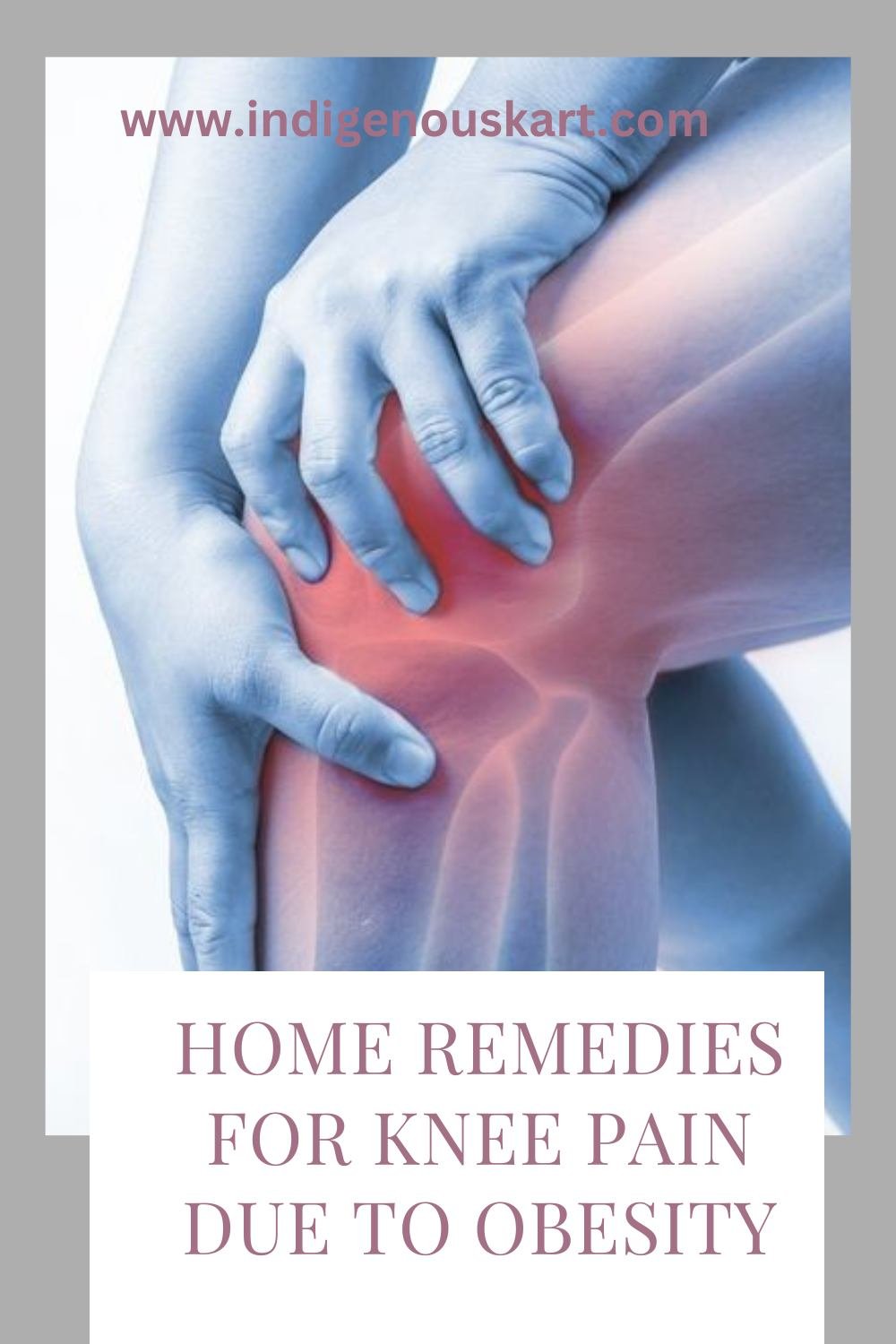Experiencing knee pain due to obesity can be a common and debilitating issue for many individuals. The excess weight puts additional stress on the knee joints, leading to discomfort and limited mobility. While it’s important to consult with a healthcare professional for a comprehensive diagnosis and treatment plan, there are several home remedies that can help alleviate knee pain associated with obesity. In this article, we will explore fifteen effective home remedies that can provide relief and support the overall well-being of individuals facing this condition.
Introduction
Are you one of the millions of people struggling with knee pain caused by obesity? Excess weight can put immense pressure on your knee joints, leading to discomfort and limited mobility. Fortunately, there are several effective home remedies that can help alleviate knee pain due to obesity. In this comprehensive guide, we will explore natural solutions and lifestyle changes that can provide relief, reduce inflammation, and improve your overall well-being.
Understanding the Link between Obesity and Knee Pain
Excessive body weight increases the stress on the knee joints, leading to accelerated wear and tear, inflammation, and pain. It’s crucial to address both obesity and knee pain together to alleviate symptoms and improve overall health.
Maintaining a Healthy Weight
Losing weight can significantly reduce the burden on the knee joints. Adopting a healthy and balanced diet, portion control, and regular exercise can aid in weight management and subsequently relieve knee pain.
Incorporating Physical Activity into Daily Routine
Engaging in regular physical activity helps strengthen the muscles around the knee joint, providing support and stability. Low-impact exercises like swimming, cycling, and walking can be beneficial for individuals with knee pain due to obesity.
Low-Impact Exercises for Strengthening the Knee
Including exercises that focus on knee strength can help reduce pain and improve mobility. Examples include leg raises, hamstring curls, and wall squats. It’s essential to start slowly and gradually increase intensity to avoid further injury.
Following a Nutritious Diet
Consuming a well-balanced diet rich in essential nutrients can promote weight loss and reduce inflammation. Emphasize whole foods, fruits, vegetables, lean proteins, and healthy fats while limiting processed and sugary foods.
Incorporating Anti-Inflammatory Foods
Certain foods possess anti-inflammatory properties that can help reduce knee pain. Turmeric, ginger, garlic, berries, leafy greens, and fatty fish are known for their anti-inflammatory benefits and can be incorporated into the diet.
Applying Hot and Cold Therapy
Alternate between hot and cold therapy to alleviate knee pain. Applying a cold compress or ice pack can help reduce inflammation, while a warm compress or heating pad can relax the muscles and ease discomfort.
Practicing Proper Posture
Maintaining proper posture distributes weight evenly across the body and minimizes stress on the knee joints. Avoid slouching and make a conscious effort to sit and stand with a straight back.
Using Assistive Devices
Utilizing assistive devices such as knee braces, crutches, or walking aids can provide additional support to the knee joint and alleviate pain during physical activities.
Trying Acupuncture or Acupressure
Acupuncture and acupressure are alternative therapies that can help manage knee pain. These practices stimulate specific points in the body, promoting pain relief and overall well-being.
Utilizing Natural Pain Relief Remedies
Several natural remedies, such as Epsom salt baths, essential oils, and herbal supplements, have shown potential in reducing knee pain. However, it’s crucial to consult with a healthcare professional before trying these remedies.
Engaging in Water Therapy
Water therapy, also known as hydrotherapy, involves performing exercises in a pool. The buoyancy of water reduces the impact on the knee joints, making it an excellent option for individuals with obesity-related knee pain.
Performing Gentle Stretches
Regular stretching exercises help improve flexibility and reduce stiffness in the knee joint. Gentle stretches targeting the quadriceps, hamstrings, and calf muscles can provide relief and enhance mobility.
Applying Topical Pain Relief Creams
Topical creams containing menthol, camphor, or capsaicin can provide temporary relief from knee pain. These creams work by numbing the area or creating a warming sensation that distracts from the pain.
Taking Over-the-Counter Pain Medications
Over-the-counter non-steroidal anti-inflammatory drugs (NSAIDs), such as ibuprofen or naproxen, can help reduce pain and inflammation in the knee joint. However, it’s important to use them as directed and consult with a healthcare professional if necessary.
Conclusion
Knee pain due to obesity can significantly impact an individual’s quality of life. By incorporating these home remedies into their daily routine, individuals can manage their knee pain and support their overall well-being. However, it’s important to remember that these remedies are not a substitute for professional medical advice. If the pain persists or worsens, it is crucial to seek guidance from a healthcare professional.
FAQs (Frequently Asked Questions)
1. Is knee pain due to obesity reversible? While complete reversal may not always be possible, managing obesity and adopting healthy lifestyle habits can significantly reduce knee pain and improve overall joint health.
2. Can losing weight help with knee pain? Yes, losing weight can alleviate the burden on the knee joints, reducing pain and improving mobility.
3. Are there any specific foods that can worsen knee pain? Certain foods, such as processed foods, sugary snacks, and foods high in saturated fats, can promote inflammation and exacerbate knee pain.
4. How long does it take to see improvement in knee pain with these remedies? The time to experience improvement in knee pain may vary from person to person. Consistency in following the remedies is key, and it’s important to consult with a healthcare professional for personalized advice.
5. Are there any exercises that should be avoided if I have knee pain due to obesity? High-impact exercises, such as running or jumping, can put additional stress on the knee joints and may worsen the pain. It’s advisable to opt for low-impact exercises or consult with a physical therapist for guidance.

